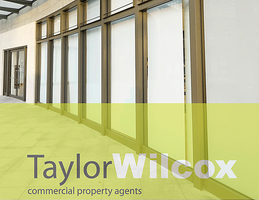Our responsibility is to get the best solution for both landlord and tenant...
The landlord and tenant responsibilities are clear and legally binding, but sometimes the world isn’t as simple as that!
Situations change and reasonable solutions need to be found quickly to benefit both parties.
Renting a business property: tenant responsibilities
Health and safety
You must carry out a health and safety risk assessment in the workplace and take action to remove any hazards.
You’ll normally be responsible for:
fire safety, safety of electrical equipment and gas safety - you must maintain equipment according to the manufacturer’s instructions, which could mean an annual inspection by a registered gas safety engineer to make sure the appliances and pipework are safe.
You are also responsible for providing:
a reasonable temperature, enough space, ventilation and lighting, toilets and washing facilities plus drinking water and safe equipment.
Your landlord is responsible for any aspects of health and safety written in the lease (eg in communal areas). You must take reasonable steps to make sure your landlord fulls these responsibilities. If you get into a dispute with your landlord, you need to keep paying rent - otherwise you may be evicted.
You can be prosecuted if you don’t follow health and safety rules. The Health and Safety Executive (HSE) and local councils are responsible for making sure you are following the law.
Repairs and maintenance
Your lease should say who is responsible for repairs and maintenance of the property.
Moving out
When you move out, you may have to pay for certain repairs, or return the property to the state it was in
when you first rented it. The repairs you’ll need to make are called ‘dilapidations’ and should be written in the lease. Any responsibility not mentioned in the lease will usually be yours as the tenant.
Renting a business property: landlord responsibilities
The Landlord and Tenant Act 1954 is an important piece of legislation.
Part II of the Act recognises that protection is necessary for business tenants since they stand to lose goodwill and much of the value of their stock and equipment, if they have to leave the premises when the lease expires. The cornerstone of this protection is section 24, which provides, where such a termination occurs, business tenants are given a right to renew their leases.
The tenant’s right to renew his tenancy can be resisted by the landlord only on one or more of these seven grounds of opposition set out in the Act:
1. Tenant’s failure to repair.
2. Persistent delay in paying rent.
3. Other substantial breaches by the tenant.
4. Availability of suitable alternative accommodation.
5. Tenant is a sub-tenant of part of the property originally let
sssand the landlord can obtain a better rent by re-letting the
sssproperty as a whole,
6. The landlord has an intention to demolish or reconstruct
sssthe premises.
7. The landlord’s intention is to occupy the premises, either
sssfor the purposes of business or as a residence.




